What is On-Page SEO and Why Does It Matter?
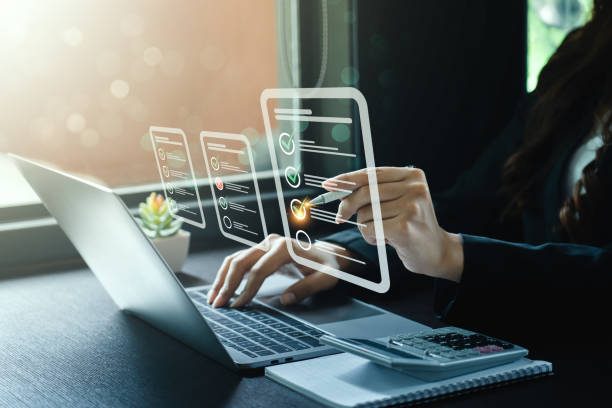
On-Page SEO refers to a set of actions performed within your website to improve its ranking in search engine results (such as Google).
These actions include optimizing content, site structure, HTML tags, and other internal elements of the site.
In essence, On-Page SEO helps search engines better understand your website’s content and display it to users who are looking for related information.
The importance of SEO lies in the fact that a site with great content has little chance of being seen without proper optimization.
#OnPageSEO can attract a lot of organic (free) traffic to your site, resulting in increased sales and revenue.
In short, On-Page SEO is a long-term investment that has a significant return.
Imagine you have a physical store.
If the store shelves are messy, the products are not properly labeled, and it is difficult for the customer to find the desired product, you will lose many customers.
On-Page SEO plays exactly the same role for your website.
By optimizing On-Page SEO, you help search engines easily find your site, understand its content, and display it to users who are looking for your products or services.
In today’s competitive world, On-Page SEO is no longer an option, but a necessity.
If you want to be seen in search results and get organic traffic, you need to take your website’s On-Page SEO seriously.
This also helps to improve the user experience of your site, because by optimizing the site structure and content, users can easily find the information they need.
Good user experience itself leads to a higher ranking in search results.
Are you dissatisfied with the low sales of your online store?
Rasaweb is your solution for having a professional and high-selling online store.
✅ Significant increase in sales and revenue
✅ Easy and enjoyable shopping experience for customers
⚡ Get a free consultation from Rasaweb right now!
Keyword Research; The Cornerstone of On-Page SEO
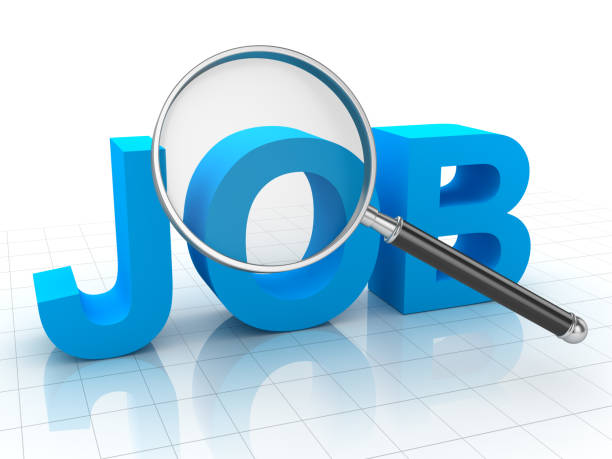
Keyword research is the first and most important step in On-Page SEO.
Keywords are the phrases that users enter into search engines to look for the information, products, or services they need.
By researching keywords, you can understand exactly what users are looking for and what phrases they are using.
This information helps you produce content based on users’ needs and optimize it for relevant keywords.
To research keywords, you can use various tools such as Google Keyword Planner, Ahrefs, SEMrush, and Moz Keyword Explorer.
These tools help you find keywords related to your business, check their search volume, and assess the level of competition for them.
On-Page SEO without keyword research is like driving at night without headlights.
You don’t know where you’re going and you’re likely to hit obstacles.
After identifying the keywords, you should use them in your website’s content.
But keep in mind that overuse of keywords (Keyword Stuffing) can harm your site’s ranking.
Try to place keywords naturally and relevantly in your text.
Also, use LSI (Latent Semantic Indexing) keywords as well.
LSI keywords are words that are related to your main keyword and help search engines better understand the topic of your content.
Using LSI keywords helps improve your website’s On-Page SEO and increases your chances of ranking in search results.
Content Optimization; Kingdom Belongs to Valuable Content
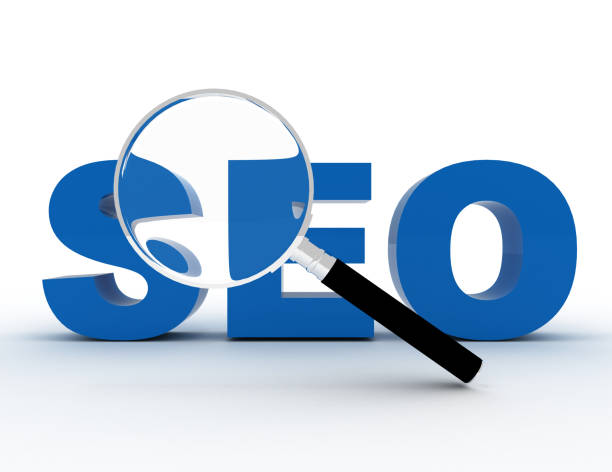
Content is the king of SEO.
High-quality and valuable content is one of the most important ranking factors in search results.
Search engines are looking for content that is useful and informative for users.
Therefore, you should produce content that answers users’ questions, solves their problems, and provides them with new and valuable information.
On-Page SEO depends on the production of valuable and practical content.
To optimize content, you need to pay attention to a few points:
- Attractive and Relevant Title Your page title should be attractive and relevant to the content of the page and also include your main keyword.
- Meta Description The meta description is a summary of the page content that is displayed in search results.
Meta descriptions should be attractive and persuasive and encourage users to click on your site link. - Suitable Structure Your content should have a suitable structure and use headings, subheadings, paragraphs, and lists to organize information.
- Images and Videos Using images and videos can increase the attractiveness of your content and keep users on your site longer.
- Readability Your content should be readable and understandable.
Use short and simple sentences and avoid using unnecessary technical terms.
Producing quality content takes a lot of time and effort.
But this investment is worth it.
By producing valuable content, you can attract a lot of organic traffic to your site, increase your brand credibility, and gain more customers.
Content marketing is one of the most effective online marketing methods.
| Factor | Description | Importance |
|---|---|---|
| Page Title | The title should be attractive, relevant, and include the main keyword. | Very High |
| Meta Description | Attractive and persuasive summary of the page content | High |
| Content Structure | Use of headings, subheadings, paragraphs, and lists | High |
| Images and Videos | Use of images and videos to increase attractiveness | Medium |
| Readability | Use of short and simple sentences | High |
Optimizing HTML Tags; SEO’s Skeleton
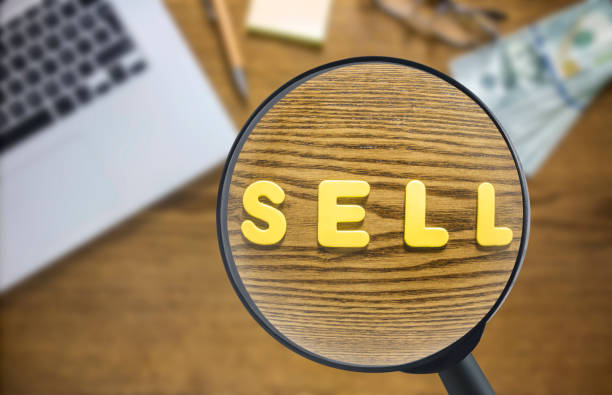
HTML tags are structural elements of a web page that help search engines understand the content of the page.
Optimizing HTML tags is one of the most important aspects of On-Page SEO.
On-Page SEO without optimizing HTML tags is like building a building without a skeleton.
Your building may look beautiful, but it will not have the necessary strength and will not resist earthquakes.
The most important HTML tags that need to be optimized are:
- Title Tag The title tag displays the title of your page in search results.
The title tag should be attractive, relevant, and include your main keyword. - Heading Tags Heading tags (H1, H2, H3, etc.) are used to structure your content.
Use the H1 tag for the main title of the page and H2, H3, etc. tags for subheadings.
Place your keywords naturally in the heading tags. - Meta Description Tag The meta description tag is a summary of the page content that is displayed in search results.
Meta descriptions should be attractive and persuasive and encourage users to click on your site link. - Alt Tag The Alt tag is used to describe images.
The Alt tag helps search engines understand the content of your images.
Use relevant keywords in the Alt tag of your images.
By optimizing HTML tags, you help search engines better understand your website’s content and display it to users who are looking for related information.
This helps to improve your site’s ranking in search results and attracts more organic traffic to your site.
Does your current corporate website not reflect your brand’s credibility and power as it should? Rasaweb solves this challenge for you with professional corporate website design.
✅ Increase the credibility and trust of visitors
✅ Attract more targeted customers
⚡ Click to get a free consultation!
Proper URL Structure; A Way to Better Understand Content
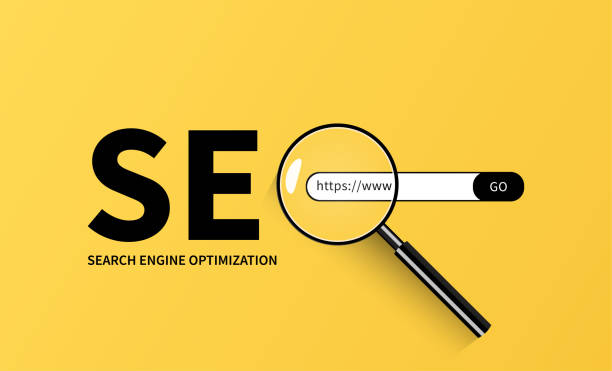
The URL structure is the address of your web pages.
A proper URL structure helps search engines better understand the content of your pages and display it to users.
Clear and concise URLs are also easier for users to remember and share.
On-Page SEO has a significant impact on URL structure.
To create a proper URL structure, you need to pay attention to a few points:
- Use of Keywords Your URLs should include keywords related to the content of the page.
- Being Short and Concise Your URLs should be short and concise.
Avoid using unnecessary words and special characters. - Use of Hyphen (-) Use a hyphen (-) to separate words in the URL.
- Avoid Capital Letters Use lowercase letters in the URL.
- Compatibility with Site Structure Your URLs should be compatible with the overall structure of your site.
By creating a proper URL structure, you help search engines better understand your website’s content and display it to users who are looking for related information.
This helps to improve your site’s ranking in search results and attracts more organic traffic to your site.
Also, proper URLs improve the user experience and encourage users to stay longer on your site.
Internal Linking; A Bridge to Other Pages

Internal linking is the process of creating links between different pages of your website.
Internal linking helps search engines understand the structure of your site, identify the importance of different pages, and find related content.
On-Page SEO is heavily dependent on internal linking.
Internal linking has many advantages:
- Improving Site Ranking Internal linking helps search engines to better index your site and improve your site’s ranking in search results.
- Increasing Traffic Internal linking helps users to easily navigate your site and visit different pages.
This increases the traffic to your site. - Improving User Experience Internal linking helps users to easily find the information they need and enjoy your site.
- Reducing Bounce Rate Internal linking motivates users to stay longer on your site and visit more pages.
This reduces your site’s bounce rate.
For internal linking, you need to pay attention to a few points:
- Relevance Links should be relevant to the content of the page.
- Anchor Text Use appropriate anchor text for links.
Anchor text is the text that is clicked on and directs to another page.
Use relevant keywords in the anchor text. - Appropriate Number of Links Use an appropriate number of links on each page.
Avoid excessive linking.
With proper internal linking, you can help search engines and users better understand and enjoy your site.
This helps to improve your site’s ranking in search results, increase site traffic, and improve the user experience.
Site Loading Speed; An Important Factor in SEO
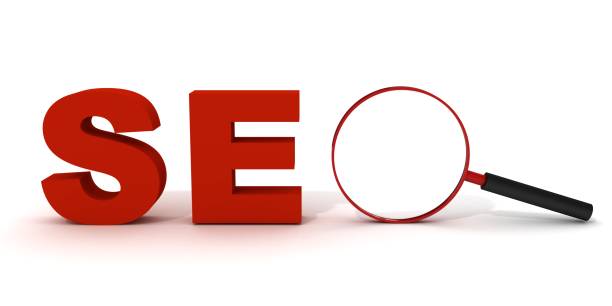
Site loading speed is the amount of time it takes for a web page to load in a user’s browser.
Site loading speed is one of the most important ranking factors in search results.
Users who have to wait a long time for a page to load are more likely to leave your site and go to other sites.
On-Page SEO is largely dependent on loading speed.
Slow loading speed has many negative effects:
- Decreased Site Ranking Search engines give a better ranking to sites that have a high loading speed.
- Increased Bounce Rate Users who have to wait a long time for a page to load are more likely to leave your site.
- Decreased Traffic If your site is slow, you will receive less traffic.
- Decreased Sales If your site is slow, you will have fewer customers.
To improve site loading speed, you can use the following methods:
- Optimize Images Optimize your images to reduce their size.
- Enable Compression Use Gzip compression to reduce the size of your site files.
- Use CDN Use a CDN (Content Delivery Network) to load your site files faster.
- Optimize Code Optimize your site code to reduce its size.
- Choose Suitable Hosting Use suitable and high-speed hosting.
By improving site loading speed, you can improve your site’s ranking in search results, reduce your site’s bounce rate, increase your site traffic, and increase your sales.
Site loading speed is one of the most important factors for success in On-Page SEO.
| Factor | Description | Importance |
|---|---|---|
| Image Optimization | Reduce image size without quality loss | Very High |
| Gzip Compression | Reduce the size of site files | High |
| CDN | Load files faster from servers near the user | Medium |
| Code Optimization | Reduce the size and complexity of the code | High |
| Suitable Hosting | Choose a hosting service with sufficient resources | Very High |
Optimizing for Mobile; Presence in Users’ Hands
![]()
Today, most users access the internet via mobile.
Therefore, optimizing your site for mobile is one of the most important aspects of On-Page SEO.
Search engines give a better ranking to sites that are optimized for mobile.
On-Page SEO for mobile is a very important factor.
To optimize your site for mobile, you need to pay attention to a few points:
- Responsive Design Use responsive design so that your site automatically adapts to the screen size of different devices.
- Loading Speed Your site should also load quickly on mobile.
- Readability The text of your site should be readable on mobile.
Use appropriate fonts and a large font size. - Easy Navigation Navigation of your site should be easy on mobile.
Menus should be easily accessible and buttons should be large enough for users to easily click on them. - Avoid Pop-ups Avoid pop-ups on mobile.
By optimizing your site for mobile, you can improve the user experience, reduce the bounce rate, increase your site traffic, and improve your site’s ranking in search results.
Optimizing for mobile is an essential investment for any business that wants to succeed in the online world.
Are you bothered by losing customers who have visited your site to make a purchase?
Rasaweb is your specialized solution for having a successful online store.
✅ Significant increase in your online sales
✅ Creating trust and professional branding with customers⚡ Get a free consultation from Rasaweb experts!
Local SEO; Being Seen Near Customers
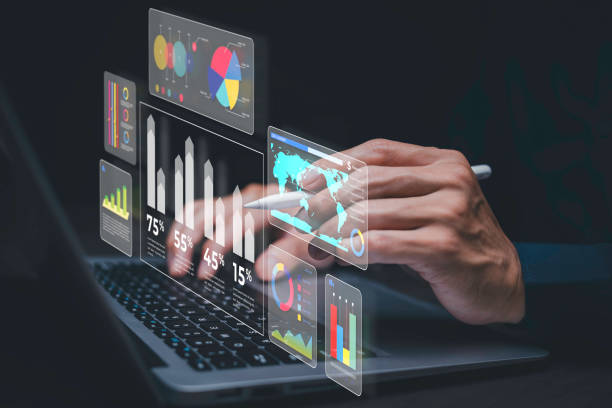
Local SEO refers to optimizing a site to attract local customers.
If your business provides services to local customers, you should take local SEO seriously.
On-Page SEO helps you succeed in local SEO.
For local SEO, you need to pay attention to a few points:
- Register with Google My Business Register your business with Google My Business.
- Mention Name, Address, and Phone Number (NAP) Mention your name, address, and phone number consistently on all pages of your site and on other reputable sites.
- Request Reviews Ask your customers to post reviews about your business on Google My Business and other review sites.
- Use Local Keywords Use local keywords in your site content.
- Create Local Pages Create pages for each of your business locations.
With local SEO, you can be seen in local search results, in Google Maps, and on other local platforms.
This helps you attract more customers and increase your sales.
On-Page SEO helps you optimize your pages for local keywords and improve your site’s ranking in local search results.
Monitoring and Analysis; The Key to Continuous Improvement
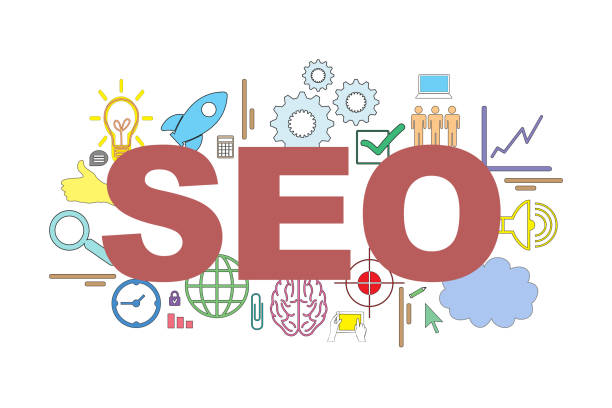
On-Page SEO is a continuous process.
After taking optimization measures, you should regularly monitor and analyze the performance of your site.
With monitoring and analysis, you can identify the strengths and weaknesses of your site and take the necessary measures to improve it.
On-Page SEO without monitoring and analysis is like driving on a road without a map.
You don’t know where you’re going or how to get there.
To monitor and analyze site performance, you can use various tools such as Google Analytics, Google Search Console, Ahrefs, and SEMrush.
These tools help you obtain the following information:
- Site Traffic Check the amount of traffic to your site.
- Keywords Identify the keywords that drive the most traffic to your site.
- Bounce Rate Check your site’s bounce rate.
- Loading Speed Check your site’s loading speed.
- Site Ranking Check your site’s ranking in search results.
By analyzing this information, you can identify the weaknesses of your site and take the necessary measures to improve it.
For example, if you notice that your site’s bounce rate is high, you should investigate why users are leaving your site and what problems exist.
On-Page SEO requires constant attention and care to achieve the best results.
Frequently Asked Questions
| Question | Answer |
|---|---|
| What is On-Page SEO? | On-page SEO involves optimizing elements that are directly under your control and within your website. Its purpose is to help search engines better understand the content of the page and improve its ranking. |
| Why is On-Page SEO important? | On-page SEO gives clear signals to search engines about the content of the page, improves user experience, and increases the chance of attracting organic traffic. |
| What are the most important On-Page SEO factors? | Keywords, Title Tag, Meta Description, URL structure, quality content, image optimization, and internal links are among the most important factors. |
| What is the role of the Title Tag in On-Page SEO? | The title tag is one of the most important signals for search engines and users, which specifies the main topic of the page. It should include the main keyword and be attractive. |
| How important is Meta Description? | The meta description does not directly affect the ranking, but it can improve the click-through rate (CTR) by encouraging users to click. |
| How to optimize images for On-Page SEO? | By using a descriptive file name, appropriate Alt Text containing keywords, compression to reduce size, and correct dimensions. |
| What effect do Internal Links have on SEO? | Internal links help search engines discover and index site pages, distribute PageRank throughout the site, and improve user navigation. |
| Is page loading speed one of the On-Page SEO factors? | Yes, page loading speed is a critical factor in On-Page SEO and user experience. Slower pages can lead to higher bounce rates and lower rankings. |
| What are the characteristics of quality content for On-Page SEO? | Quality content should be comprehensive, unique, relevant, reliable, readable, and fully answer the needs and questions of users. |
| How can keywords be used in content? | Keywords should be used naturally in the title, subheadings, first paragraph, body text, and alt text of images. Avoid Keyword Stuffing. |
And other services of Rasa Web Advertising Agency in the field of advertising
Smart Digital Advertising: Professional optimization for campaign management using dedicated programming.
Smart SEO: Transform online growth with the help of Google Ads management.
Smart Digital Advertising: A quick and efficient solution for analyzing customer behavior with a focus on attractive user interface design.
Smart Marketplace: A professional solution for digital branding with a focus on intelligent data analysis.
Smart Marketing Automation: Transform website visits with the help of using real data.
And more than hundreds of other services in the field of internet advertising, advertising consulting and organizational solutions
Internet Advertising | Advertising Strategy | Reportage Ads
Resources
What is On-Page SEO? A comprehensive guide to website On-Page SEO
,What is On-Page SEO? (+ Important tips for better ranking in Google)
,What is On-Page SEO? 0 to 100 Website On-Page SEO Training
,What is On-Page SEO or On-Page SEO? (Internal site optimization for search engines)
? Are you ready to boost your business in the digital world? Rasaweb Digital Marketing Agency, by providing services such as website design with a modern user interface, professional SEO, and social media management, paves the way for the growth and success of your business in the online space. For a free consultation and more information about our services, contact us now.
📍 Tehran, Mirdamad Street, next to the Central Bank, South Kazerun Alley, Ramin Alley No. 6
“`




